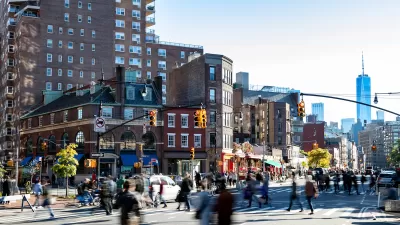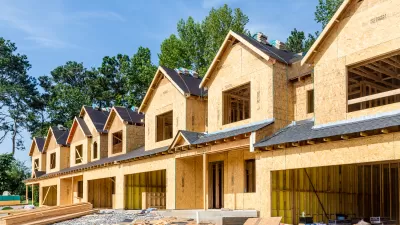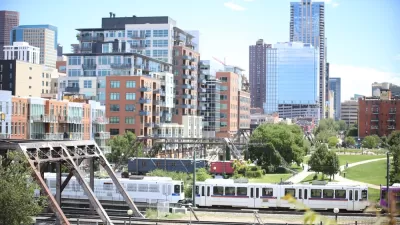Denver has a reputation for building new residential units to accommodate its rapid growth. But the incoming class of new city councilmembers brings strong anti-development politics.
"The Denver City Council's next class will take office in mid-July with the most new members in more than a decade and will have up to three new voices questioning development policies," reports Jon Murray.
"In a runoff Tuesday for central Denver's open District 10 seat, Wayne New, who made aggressive development in Cherry Creek North a motivating factor in his campaign, defeated Anna Jones, a community development consultant," according to Murray. Moreover, "New joins councilman-elect Rafael Espinoza, from northwest District 1, and Paul Kashmann, from southeast District 6, as more skeptical voices on the issue."
Despite the unprecedented turnover on the Denver City Council, local political analysts quoted by Murray expect some policies changes regarding development as a result of the new councilmembers, but the city's strong mayoral system should limit the possibility of any drastic institutional change.
Denver's development climate is of particular interest due to the city's strong growth trends. Much of the public narrative about Denver's development in recent years has been devoted to transit oriented development in the urban core, yet development controversies in suburban cities and explosive growth on the city's fringes might be the more impactful trends to watch in the region.
FULL STORY: Denver elections add three new skeptical development voices to City Council

Pennsylvania Mall Conversion Bill Passes House
If passed, the bill would promote the adaptive reuse of defunct commercial buildings.

Planning for Accessibility: Proximity is More Important than Mobility
Accessibility-based planning minimizes the distance that people must travel to reach desired services and activities. Measured this way, increased density can provide more total benefits than increased speeds.

Fair Housing Cannot Take a Back Seat to ‘Build, Baby, Build’
If we overlook fair housing principles in the plan to build US housing back better, we risk ending up right back where we started.

LA Metro Board Approves New 710 Freeway Plan
The newest plan for the 710 corridor claims it will not displace any residents.

Austin’s Proposed EV Charging Rules Regulate Station Locations, Size
City planners say the new rules would ensure an efficient distribution of charging infrastructure across the city and prevent an overconcentration in residential areas.

Making California State Parks More Climate-Resilient
A recently released report offers recommendations for keeping state parks healthy and robust, including acquiring additional land for conservation and recreation.
City of Costa Mesa
Licking County
Barrett Planning Group LLC
HUD's Office of Policy Development and Research
Mpact Transit + Community
HUD's Office of Policy Development and Research
Tufts University, Department of Urban and Environmental Policy & Planning
City of Universal City TX
ULI Northwest Arkansas
Urban Design for Planners 1: Software Tools
This six-course series explores essential urban design concepts using open source software and equips planners with the tools they need to participate fully in the urban design process.
Planning for Universal Design
Learn the tools for implementing Universal Design in planning regulations.


























